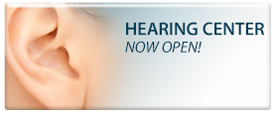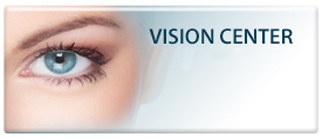Vision Loss FAQs
I can’t see as well as I could 10 years ago. What should I do?
Presbyopia is an eye condition that affects close up vision, which almost everyone experiences starting at around age 40. It occurs because your eyes’ lenses lose flexibility over time. This may be what you’re experiencing. Schedule an appointment to get your vision assessed and ensure you don’t have a more serious eye condition.
What does 20/20 vision mean?
This is the standard distance measurement of normal vision. It means you can see a certain size of letters on a vision chart from 20 feet away. If your friend has 20/40 vision, it means her visual acuity is worse than yours. You could see something at 40 feet that she would only be able to see at 20 feet. 20/40 vision is considered the threshold of good enough vision to do tasks such as driving without using corrective lenses.
I’m interested in LASIK surgery. What do I need to know?
LASIK is the most common elective procedure in the U.S. each year with about 700,000 patients opting to undergo this laser eye surgery annually. About 80% of the patients we see are eligible for the procedure. The only way to know if LASIK is right for you is to visit us for an evaluation, so schedule an appointment if you’re interested in learning more about this procedure.
What is a cataract?
A cataract occurs when the proteins in your eye’s lens clump together. This causes a white clouding effect on the lens, which can result in vision loss and eventual blindness. Cataracts are the leading cause for blindness worldwide. However, a cataract is easy and simple to treat with cataract surgery. More than half off all people in the U.S. 80 or older have a cataract or have had cataract surgery.
I was recently diagnosed with diabetes. What do I need to know?
Diabetic eye disease is a serious problem. The most common diabetic eye disease, diabetic retinopathy, is the leading cause of blindness in the U.S. If you’ve been diagnosed with diabetes, you may be experiencing temporary changes in your vision. It’s vital to schedule an appointment with us within a few months of your diagnosis to check for vision changes, complications and diseases related to your diabetes. After this appointment, be sure to come back for regular vision checks at least once a year.
Can working on a computer hurt my eyes?
Yes. Computer vision syndrome is a growing problem in Southaven and across the world. If you’re experiencing any symptoms of pain, discomfort or decreased productivity, you should visit us to learn more about computer vision syndrome. In addition, there are many steps you can take at home, work or school to relieve eyestrain and improve your overall experience when working on a computer.
Hearing Loss FAQs
I think I need to get my hearing checked. What should I do next?
First, try our online hearing test to get a better idea of whether your concerns are real. If your results recommend further testing, it’s important to begin this process right away. Hearing evaluation appointments at DeSoto Eye & Ear are easy, fast and very helpful. Not only can we tell you if you are suffering from impaired hearing, but we can also tell you many details about your hearing loss and how to treat it effectively.
What kind of hearing loss do I have?
Most people with hearing loss—about 90%—are struggling with sensorineural (inner ear) problems. The only way to know for sure, though, is to visit our state-of-the-art clinic for a hearing test. We use the most updated examinations, tools and procedures to ensure we provide you with an accurate diagnosis and personalized treatment plan.
How can I protect my ears?
Noise-induced hearing loss is responsible for 1 in 4 cases of hearing impairment today. Protecting yourself from exposure to loud, damaging noise is vital. The best way to do this is by using custom ear molds or earplugs in any potentially harmful situation. Along with protecting your hearing from sound exposure, there are plenty of other threats to your sense of hearing. These include ototoxic medications, disease and trauma. Please take time to talk with us for more information about preventing hearing loss.
Have there been any important changes in hearing aids?
Like most technology, hearing aids have seen vast improvements in recent years. Hearing aids are no longer the clunky, ineffective devices worn by people in the 1970s and ’80s. Today’s hearing aids offer sleek design, digital technology and many features that make hearing aids better than ever before. For example, some of today’s models can be programmed and controlled using an app on your phone.
What are Assistive Listening Devices (ALDs)?
Despite the many outstanding technologies that have improved hearing aids, the devices still don’t work perfectly in every situation. ALDs are instruments that work in these settings to improve hearing. From helping you hear on the phone, in restaurants and at parties to improving hearing in movie theaters and lectures, ALDs offer patients the flexibility to hear in every situation. Talk with us about the advantages of investing in an ALD for your needs.


